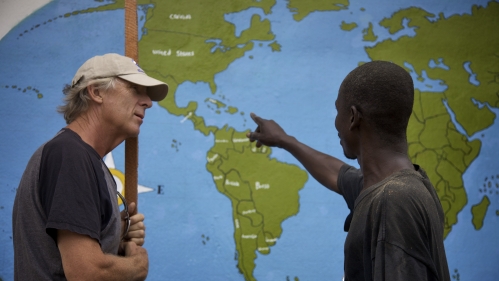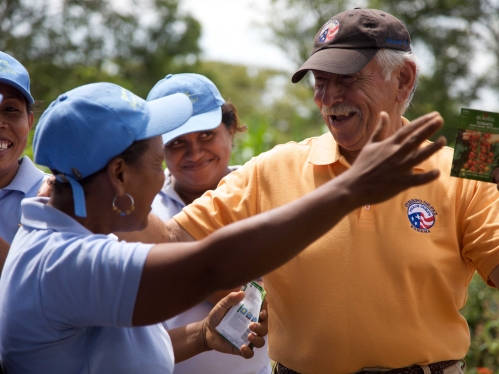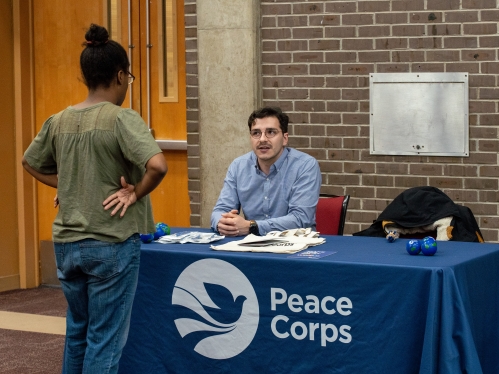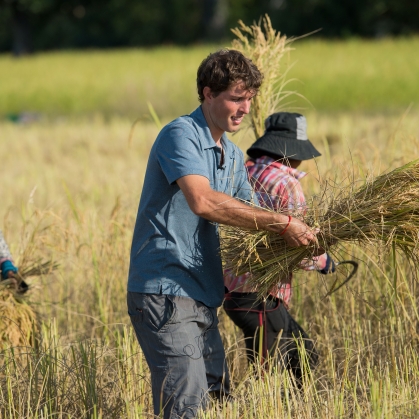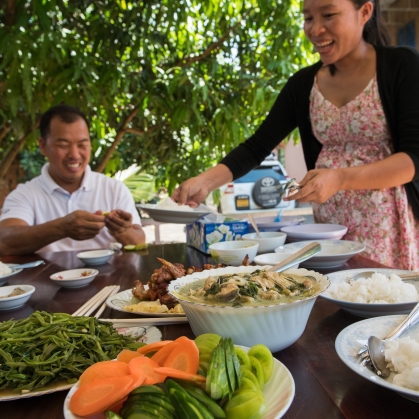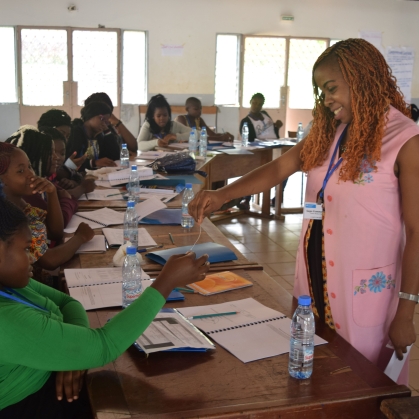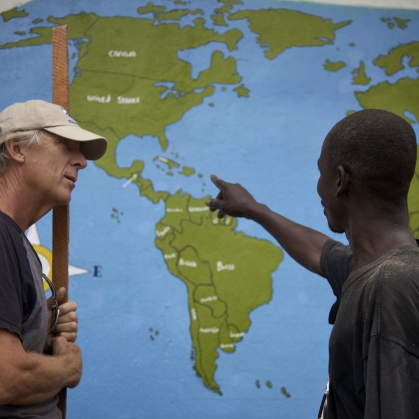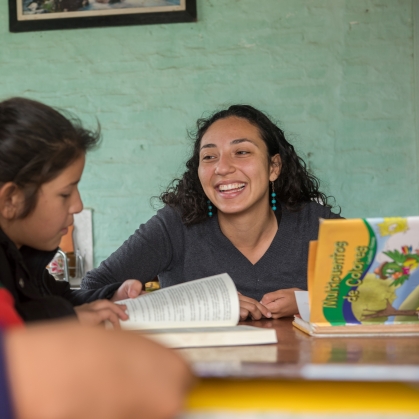Agriculture
Agriculture volunteers work with small-scale farmers and families to increase food security and production and adapt to climate change while promoting environmental conservation.
They introduce farmers to techniques that prevent soil erosion, reduce the use of harmful pesticides, and replenish the soil. They work alongside farmers on integrated projects that often combine vegetable gardening, livestock management, agroforestry, and nutrition education.

